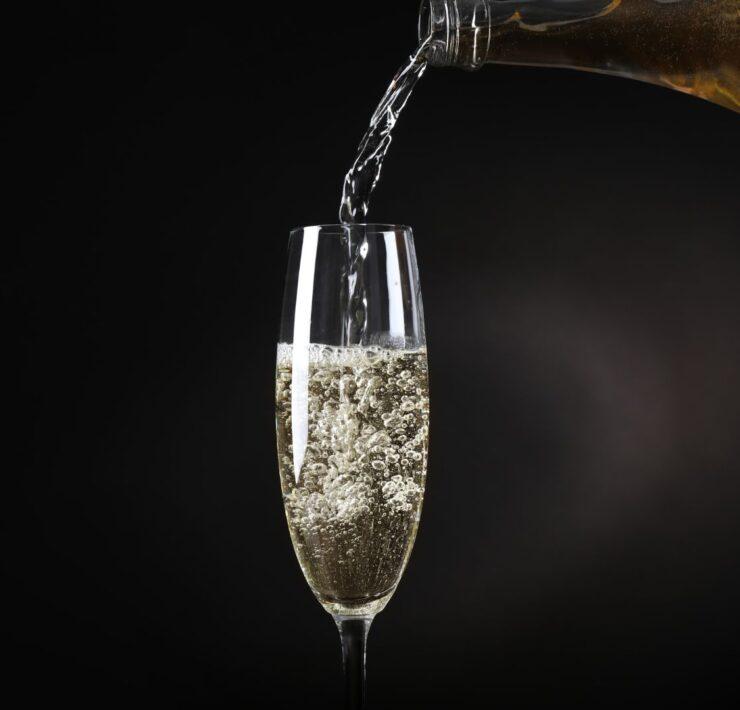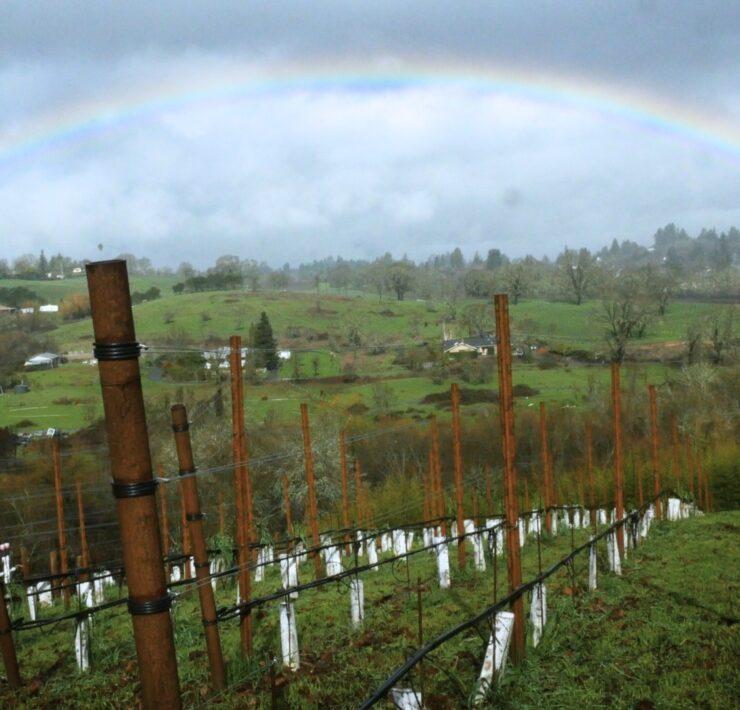There’s one major and very practical reason that England doesn’t come to mind when thinking of European wine-producing regions. Generally, the climate is thought to be too cold to grow grapes, with mid-winter averages hovering around freezing. Low temperatures create a myriad of vineyard risks, such as frost, heavy rain, mold, and mildew. However, in the early 90s, a handful of pioneers, including Mike Roberts of Ridgeview Wine Estate in Sussex, had other ideas.
The Beginnings of Ridgeview Wine Estate
Roberts was initially a tech pioneer, founding a software company in 1983 with his wife in their kitchen. In ten years, it became the largest independent IBM dealership in Europe. Ultimately, he sold the company in the mid-90s and the inevitable “what’s next?” question arose.
Upon selling the company, he toyed with the idea of buying land and growing grapes in Champagne, a region and wine he’d long loved. The thought of doing the same in southern England, where Champagne houses Pommery and Taittinger maintain plantings, was also appealing. Ultimately, Mike chose southern England, specifically in Sussex and, in 1995, planted 17 acres in what is now Ridgeview Wine Estate. His decision helped shape the area’s reputation for traditional method sparkling wine, which today makes up 64% of production.

It was a tough time to start a UK winery, as most wine production was “rubbish”, according to locals. Many cited unsuitable grape varieties (such as Muller-Thurgau, Richienstiner, Schonberger and Ortega) and challenging climate as the main reasons for poor quality.
From the beginning, Roberts sought sensible and thoughtful choices at every step, maintaining quality and sustainability and being a fierce steward of the land.
Climate change and increasing temperatures have allowed more quality grapes such as Chardonnay and Pinot Noir to grow in the region. Yet, it struggles with frost pressure and consistently unpredictable weather. The easy route would include scrapping sustainability to focus on higher yields, particularly in an area known for terribly low yields. However, Ridgeview actively chooses to lead with sustainability despite the challenges and costs.
Sustainability at Ridgeview Wine Estate
Sustainability is a thru line in everything Ridgeview does. “Every decision we’ve made in the last five years onwards has an environmental review before we make that decision”, says Simon Roberts, head winemaker and the late Mike Roberts’s son.
In southern England, it’s nearly impossible to be fully organic because of the marginal climate. For this reason, they’ve chosen not to be dogmatic about it. If and when they spray, they do so judiciously. They use hyper-efficient recycling tunnel sprayers instead of conventional sprayers. Their sprayers use 60% fewer chemicals that directly hit the vine’s canopy. The small amount of overspray is recycled back into the machine. An assessment of spray usage happens every year, focusing on reducing the practice as much as possible.
The Ridgeview property boasts a wildlife meadow, woodlands, owl boxes, bat boxes, and insect hotels. Bees are also cultivated to encourage biodiversity in the woodlands. An unexpected advantage of the bees is that it has turned into a great team-building activity for the staff who have been trained in beekeeping.
With any property, there is, of course, the risk of unwanted wildlife. Mardi Roberts, director of communications and Simon’s wife, shares an example of a difficult choice in the vineyard. “We’ve looked at deer fencing and bird netting. But we prefer to suffer a little collateral damage and work within the environment instead of scaring away nature too much.”
The property utilized cover crops in the vineyards to add to bio-diversity and a Bio-Bubble wastewater treatment system to process waste from all buildings on the property, including the winery and offices. Ridgeview is taking it further and working on harvesting rainwater for gray water for use in restrooms and vineyards, cleaning and washing winery equipment, and water plants throughout the estate.
Frost and Climate Mitigation Strategies
Frost is the number one challenge for growers in the area. As a result, many producers default to the tried-and-true use of candles. The warm air generated by lit candles (aka bougies) helps displace the cold air and discourage frost from setting in on the vines. At Ridgeview, this simple strategy is further facilitated with the aid of technology. Each of their vineyards has a weather station. If the nighttime temperatures get too cold, the vineyard team receives an automated text message to let them know.

Ridgeview grows in multiple areas of southern England to mitigate other climate challenges. Budburst and flowering time need to be rain free for successful pollination. It was perfect this year, according to Simon, but it has been a challenge in previous years. The region is a fraction of the size of Napa Valley, but the differences between small distances are enormous. Ridgeview has 16 acres under vine in Sussex, 16 acres a few miles away from their main property, and 125 acres throughout southern England. The majority of these are through relationships and long-term contracts with growers.
The Future of Ridgeview Wine Estate
As of summer 2022, a new onsite facility that includes what will become the main winery, cellars, labs, offices, and tasting room is nearing completion. Ridgeview was able to source most labor and materials locally and avoided installing a temperature control system that would have run non-stop 24/7 by digging deeper and further away on the property than initially planned. The costly change in the plan means they will have natural temperature control moving forward.
Besides meeting their winery benchmarks, Simon plays an integral part in the rigorous Wines of GB sustainability scheme, which began 15 years ago. Ridgeview Wine Estate is one of the Sustainable Wines of GB members, of which there are over 80. In the next few years, wines will need to include this certification to be on the shelves in supermarkets and national chains.
Ridgeview is also in the process of becoming a certified B Corp, further proving they are a meaningful legacy sparkling wine producer in the region with a strong tie to the land. B Corp certification involves a checklist to measure a company’s social and environmental impact not just on the property but also on neighboring land. “Ridgeview is within the South Downs National Park. The border was drawn around us, so as a generational family business, we take ourselves seriously as custodians of the land.”
When visiting Ridgeview Wine Estate, this is abundantly clear.









